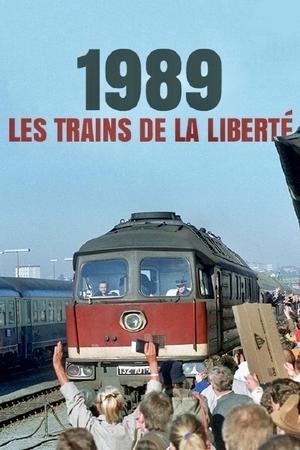

Der Osten unter Strom – Kraftakt mobile Wende(2022)
The documentary focuses on the future of mobility and as a company that wants to help shape the automotive development of tomorrow.

Movie: Der Osten unter Strom – Kraftakt mobile Wende
Top 1 Billed Cast
Narrator

Der Osten unter Strom – Kraftakt mobile Wende
HomePage
Overview
The documentary focuses on the future of mobility and as a company that wants to help shape the automotive development of tomorrow.
Release Date
2022-03-30
Average
0
Rating:
0.0 startsTagline
Genres
Languages:
DeutschKeywords
Similar Movies
Comrade Couture(de)
This film undertakes a journey into the amazing parallel universe of East Berlin’s fashion designers and experts in the art of survival. For, in the midst of the constraints of life in the GDR, there existed a fantasy world where it was possible to dance to another tune, be individual and even provocative. The most important characteristic of this bohemian scene was one’s per- sonal style. But this certainly wasn’t something that could be bought off the peg in the GDR. In this parallel universe it was up to you to create your own individual image – with your own hands. This film tells the story of the desires, the passion and the dreams that were tried and tested, lived and performed in the shadow of the Berlin Wall.
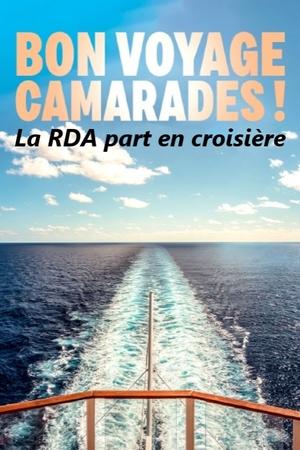 7.8
7.8Traumschiffe des Sozialismus - Kreuzfahrten in der DDR(de)
When luxury invited itself to the paradise of socialism... For three decades, East Germany rewarded its exemplary citizens by putting them on a boat.
 8.0
8.0Die Zeit meines Lebens - Dirty Dancing in Ost und West(de)
In 1987, a small film distributor from Frankfurt/Main brings the film "Dirty Dancing" to West German cinemas against all negative odds. The film becomes the hit of the year, in complete contrast to France, where foreign films have a hard time against the local film landscape.
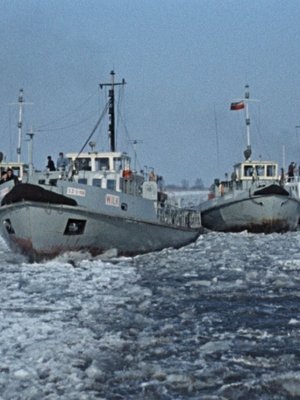 10.0
10.0Auf der Oder(de)
Documentary reports on the annual icing of the Oder in the 160-kilometer border area between the GDR and the People's Republic of Poland. Icebreakers from both countries with experienced skippers join forces to make the international waterway between Frankfurt and Szczecin navigable again. Everyone works hard as a team and even a broken-down ship cannot stop them from achieving their goal. A look back at the winter of 1947 with its flooding shows what the freezing of the river and the subsequent thaw can do if the ice floes are not drained into the Baltic Sea via Lake Dammsch in good time. The skippers from both countries have known each other for years and trust each other; the camaraderie that has developed on the Oder unites the people, they control the river in winter for the common benefit of all.
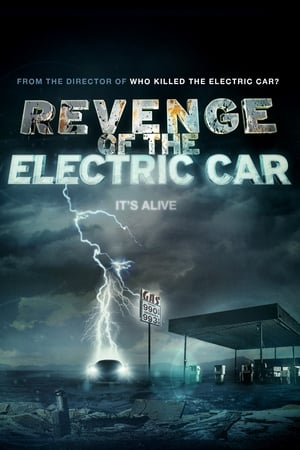 7.1
7.1Revenge of the Electric Car(en)
A sequel to 2006's Who Killed the Electric Car?, director Chris Paine once again looks at electric vehicles. Where in the last film electric cars were dismissed as uneconomical and unreliable, and were under multiple attacks from government, the auto industry, and from energy companies who didn't want them to succeed, this film chronicles, in the light of new changes in technology, the world economy, and the auto industry itself, the race - from both major car companies like Ford and Nissan, and from new rising upstarts like Tesla - to bring a practical consumer EV to market.
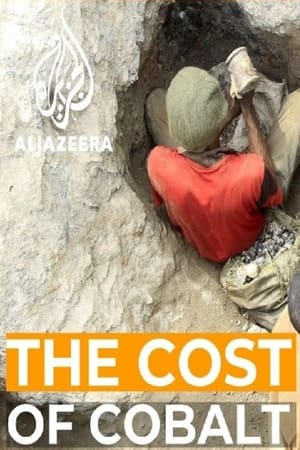 0.0
0.0The Cost of Cobalt(en)
In the cobalt mining areas of Katanga in the Democratic Republic of the Congo (DRC), babies are being born with horrific birth defects. Scientists and doctors are finding increasing evidence of environmental pollution from industrial mining which, they believe, may be the cause of a range of malformations from cleft palate to some so serious the baby is stillborn. More than 60% of the world’s reserves of cobalt are in the DRC and this mineral is essential for the production of electric car batteries, which may be the key to reducing carbon emissions and to slowing climate change. In The Cost of Cobalt we meet the doctors treating the children affected and the scientists who are measuring the pollution. Cobalt may be part of the global solution to climate change, but is it right that Congo’s next generation pay the price with their health? Many are hoping that the more the world understands their plight, the more pressure will be put on the industry here to clean up its act.
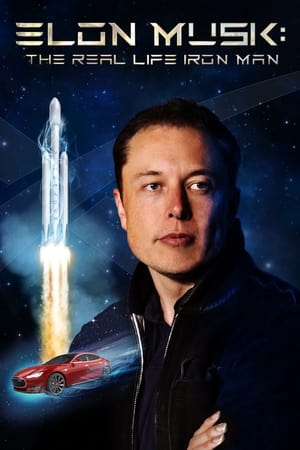 5.3
5.3Elon Musk: The Real Life Iron Man(en)
Discover the meteoric rise of Elon Musk, the man who is transforming the way we think about travel technology through electric cars, the Hyperloop, and revolutionary ideas on how we live through artificial intelligence and colonizing Mars.
Junge Deutsche im Mai(xx)
Every year, the most beautiful, best and proudest representatives of German youth meet in Dresden to take to the streets together.
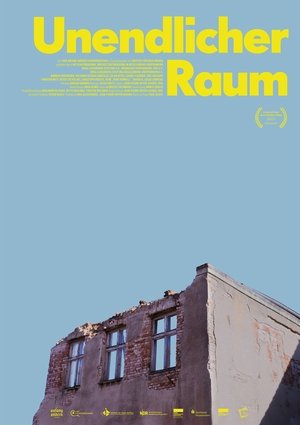 0.0
0.0Infinite Place(de)
Loitz is one of those former GDR towns that still suffer from the effects of German reunification. For a year "Infinite Place" looks behind the gray facade of the seemingly dying town and questions concepts of home and identity through the perspective of its old and new inhabitants. The town’s vacancy and people’s urge for self-realization create a fruitful look into the future.
 8.0
8.0Kalter Krieg der Konzerte - Wie Bruce Springsteen den Osten rockte(de)
Berlin, summer 1988: While Michael Jackson and Pink Floyd perform in the West, East Berliners can look forward to Bruce Springsteen, Depeche Mode and James Brown. The documentary reveals how the organizers enforced the concerts with the state authorities. On the anniversary of the fall of the Wall.
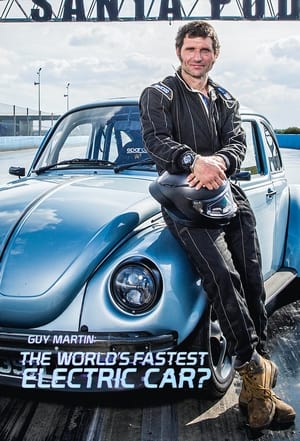 7.7
7.7Guy Martin: The World's Fastest Electric Car?(en)
Join self confessed petrol-head Guy Martin as he learns about the alternative to the internal combustion engine, Electric. In this TV special, Guy learns about the advantages of electric transport and the different varieties that exist from bicycles, cars and vans up to buses. Guy also learns some of the disadvantages from range anxiety and with the help of the Leicestershire Fire Brigade, how to deal with a fire. The ultimate aim is to produce a record breaking electrified retro road car that is suitable for the Drag strip, with Guy behind the steering wheel.
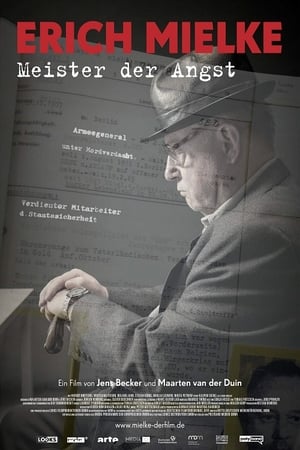 5.0
5.0Erich Mielke - Master of Fear(de)
Docudrama about life, career and breakdown of Erich Mielke, the former Security chief of East Germany.
 7.0
7.0Karl Marx und seine Erben(de)
Over the past hundred years, dramatic social upheavals have taken place in the name of Karl Marx's theories. In Western Europe, the student movement of 1968 and the Eurocommunists were inspired. And in recent times, the thinker has experienced a renaissance.
 0.0
0.0La Brigada – A Mural for the Unidad Popular in Dresden(de)
During the 16th Workers' Festival in Dresden in 1976, a student group of Chilean emigrants paints a mural symbolically depicting the activity of the Unidad Popular during Salvador Allende's reign. Festival guests comment on this work. Music by Chilean music group Jaspampa, formed in Leipzig in 1972.
 9.0
9.0Stasi, un État contre son peuple(fr)
After the fall of the Berlin Wall, thousands of documents were hastily shredded by the dreaded GDR political police. 16,000 bags filled with six million pieces of paper were found. Thanks to the meticulous work of technology, the destinies of men and women who had been spied on and recorded without their knowledge could be reconstructed.
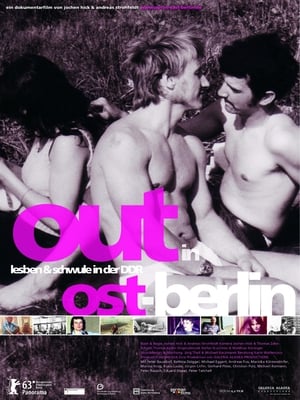 10.0
10.0Out in East Berlin: Lesbians and Gays in the GDR(de)
Paragraph 175, which made homosexual behavior punishable by law, was abolished in the German Democratic Republic (GDR) in 1968. At that time, heterosexual nuclear families constituted the center of socialist society, and homosexuality was considered a peripheral issue in the GDR. Out in East Berlin —Lesbians & Gays in the GDR tells the impressive-to-absurd personal histories of gay men and lesbians in the GDR, from the post WWII years until the fall of the Berlin Wall.
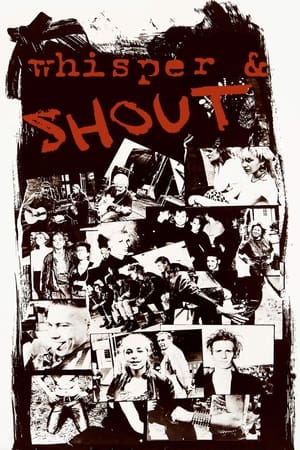 7.0
7.0whisper & SHOUT(de)
Documents important parts of the East German rock music scene of the late 1980s, from well-established bands like Silly, to underground rock bands like Feeling B. This road movie features young people using music to express their take on life, opposition to their parents' generation and opinions on the social and political climate in East Germany. It includes clips from concerts and interviews with fans and members of various bands, such as Feeling B's Christian Lorenz and Paul Landers, now members of Rammstein.
The Billion Dollar Car(en)
The Billion Dollar Car: Is the Electric Car going to change the future of urban mobility? For years companies have been manufacturing and selling electric and hybrid cars. But is there a future for the eco-friendly automobile? This documentary follows the development of electric cars including the BMW i3.
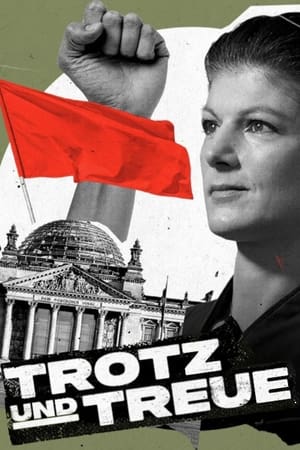 0.0
0.0Trotz und Treue: Das Phänomen Sahra Wagenknecht(de)
2024 is likely to be a decisive year for Sahra Wagenknecht's political future. In the arena of power, she might assume a role that she is already very familiar with. In the early years following the fall of the Berlin Wall, Sahra Wagenknecht became the "most famous face" of the PDS, the successor party to the SED. Yet, even as the youngest member of the party's executive board, she was considered a "disruptive factor." She is unyielding and swims against the tide. Sahra Wagenknecht does not distance herself from Stalinism, nor from the Berlin Wall, and wishes for a reformed GDR.
